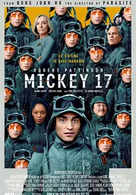Rekhachitram Movie Review: Narrative choices elevate Asif Ali's Rekhachithram
Rekhachitram Movie Review: Critics Rating: 3.5 stars, click to give your rating/review,In Malakkapara, a man commits suicide after revealing his part in a crime. Police find a skeleton fr

Critic's Rating: 3.5/5
Story: A man commits suicide after revealing his involvement in a crime. The investigation that follows brings out long-buried truths.
Rekhachithram is a subtle and remarkably interlinked film that has been made with considerable research. It is an investigation story where a puzzle is put together from the very beginning, and it's a rewarding watch too. There are some gripes about the 'need' for certain scenes and elements, but, overall, Jofin T Chacko has delivered a solid film.
Vivek Gopinath (Asif Ali), a police officer who is under suspension for playing online rummy while on duty. He is transferred to a remote station in Malakkappara as nothing is 'happening' there, as a form of punishment. However, as luck would have it, on the very same day, a man commits suicide in Malakkappara, confessing a crime he did along with a few acquaintances in his younger days through live video. The police find a skeleton from the spot, and the who and what of the murder forms the crux of the film. The film could have been just another investigation thriller, but the narrative choices set it apart. Interestingly, the identity of the victim is the one that's figured out and confirmed last in the film- an interesting placement.
The second half is where the film takes the audience on a nostalgic ride. There is plenty of creative liberty taken by the writer, bringing in Kaathodu Kathoram elements into the film, creating an alternate history in a sense. As much as seeing a young Mammootty on screen is appreciated, a little less fanboyism would have helped to stick to the levity of the plot. The recreation of the sets in the 80s was done well. Interlinking the story with instances from old films has worked, too. At least it didn't feel out of place. Ramu Sunil, who is also the writer, and John Manthrickal have made a screenplay that's engaging and subtle enough. However, the dialogues were a little off in some places. It is very rare for a Malayalam film to explore problematic relationships where people mutually equip each other's toxicity, even if it's just touched upon.
Manoj K. Jayan and Zarin Shihab played their roles in a grounded and believable manner. Asif Ali has delivered a clean, subtle performance that suits the tone of the film. Anaswara Rajan, for once, has been utilised, and she gets the chance to use her acting prowess a little, even if the role is not a groundbreaking one. The lack of face-off dialogue between the protagonist and the antagonist makes it way better, especially because their silent face-offs have a much better impact and make them somewhat real. Asif Ali has once again delivered a watchable film.
Rekhachithram is a subtle and remarkably interlinked film that has been made with considerable research. It is an investigation story where a puzzle is put together from the very beginning, and it's a rewarding watch too. There are some gripes about the 'need' for certain scenes and elements, but, overall, Jofin T Chacko has delivered a solid film.
Vivek Gopinath (Asif Ali), a police officer who is under suspension for playing online rummy while on duty. He is transferred to a remote station in Malakkappara as nothing is 'happening' there, as a form of punishment. However, as luck would have it, on the very same day, a man commits suicide in Malakkappara, confessing a crime he did along with a few acquaintances in his younger days through live video. The police find a skeleton from the spot, and the who and what of the murder forms the crux of the film. The film could have been just another investigation thriller, but the narrative choices set it apart. Interestingly, the identity of the victim is the one that's figured out and confirmed last in the film- an interesting placement.
The second half is where the film takes the audience on a nostalgic ride. There is plenty of creative liberty taken by the writer, bringing in Kaathodu Kathoram elements into the film, creating an alternate history in a sense. As much as seeing a young Mammootty on screen is appreciated, a little less fanboyism would have helped to stick to the levity of the plot. The recreation of the sets in the 80s was done well. Interlinking the story with instances from old films has worked, too. At least it didn't feel out of place. Ramu Sunil, who is also the writer, and John Manthrickal have made a screenplay that's engaging and subtle enough. However, the dialogues were a little off in some places. It is very rare for a Malayalam film to explore problematic relationships where people mutually equip each other's toxicity, even if it's just touched upon.
Manoj K. Jayan and Zarin Shihab played their roles in a grounded and believable manner. Asif Ali has delivered a clean, subtle performance that suits the tone of the film. Anaswara Rajan, for once, has been utilised, and she gets the chance to use her acting prowess a little, even if the role is not a groundbreaking one. The lack of face-off dialogue between the protagonist and the antagonist makes it way better, especially because their silent face-offs have a much better impact and make them somewhat real. Asif Ali has once again delivered a watchable film.

















































